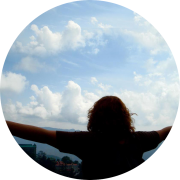This week, I got an extreme lesson in what public diplomacy really means – interacting with Syrian people, showcasing the opportunities and choices that define America, and connecting the two separate ideas together.
Despite significant setbacks from denied permissions and high-level, nonchalant political obstacles from on high, we set off this week hoping to provide opportunities for Syrian students to learn about how to study abroad in the United States. This included everything from individual advising sessions with students, to a Four Seasons dinner to an official reception with the Chargé d’Affaires. It was an incredible opportunity to not only interact with people on something I am fairly familiar with and very passionate about, education, but also to prove that I can be here, working with the Embassy, on a level a professional and productive level. Both, I think in their own ways, were a success.
So for four days, I got a chance to head a large scale event and have a series of awkward high school flashbacks, remembering what it was like to prepare for the SAT, research schools, and decide what it is I wanted to be when I grew up. (Newsflash: Still deciding).
But unlike me, these students are usually on their own, guessing what it is American universities are looking for. Community service and extracurriculars are a fairly foreign concept to most Syrians, and the Syrian nationalized education system focuses on memorization and regurgitation of facts on standardized tests – there is little to no focus on creative or critical thinking skills for students. Which is why organizations like SHABAB and MASSAR, both of which I am working with here, are such an important, albeit late-blooming, part of the new Syria. They face significant obstacles, however, because not only is there no existing capacity for this type of education system, there is very little attitude on why it is even necessary. Most Syrians who attend the handful of universities here, their greatest aspirations are to be a doctor or join a government ministry. Or sometimes, to get a PhD and teach. There is little realization that the world, and Syria specifically, needs more than doctors, professors, and civil servants. Or that these opportunities are there, waiting to be taken on.
It is an interesting contrast to what I have experienced with the educational system in America – there is so much choice, freedom, and support – here the limits on information, on opportunity. It is hard to grasp how closed down it really is. I am not condemning anyone who is a product of the Syrian education system, but I cannot imagine where I would be now if my education and the opportunities I were given were so limited.
I certainly would not be here, doing this.
